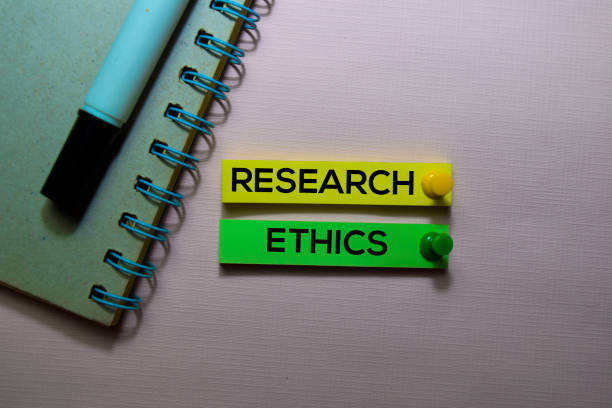
Retractions in scientific research are a necessary corrective mechanism to maintain the integrity of the scientific record. However, their occurrence often reflects underlying issues within the research ecosystem. Understanding the broader impact of retractions, evaluating current reporting mechanisms, and emphasizing the role of different stakeholders can provide a roadmap for strengthening ethical research practices.

What Are Retractions?
Retractions refer to the formal withdrawal of a published paper from the scientific literature. This usually happens when the research findings are found to be unreliable or invalid due to various reasons, including:
- Errors: Mistakes in data, analysis, or methodology that significantly affect the study's conclusions.
- Misconduct: Instances of fraud, fabrication, falsification of data, or plagiarism.
- Ethical Issues: Breaches of ethical standards, such as issues with consent, approval by ethics committees, or conflicts of interest that were not properly managed or disclosed.
- Duplication: Publishing the same data or study in multiple journals without appropriate citation or acknowledgment, also known as "self-plagiarism."
- Authorship Disputes: Significant disagreements among authors about the content or findings of the paper.
Retractions are intended to correct the scientific record and ensure the integrity of the research literature. They are usually issued by the journal that published the paper, often upon the request of the authors, editors, or institutions involved.
A retracted paper is usually marked as such in databases and journal archives, and notices of retraction explain the reasons for the retraction. These notices are crucial for maintaining transparency and trust in scientific research, as they inform the scientific community and the public about the unreliability of the affected research.
Assessing Awareness and Advocacy of Ethical Guidelines
The foundation of research integrity is built on adherence to ethical guidelines, which are designed to ensure accuracy, honesty, and transparency. Despite widespread dissemination of these guidelines, awareness and advocacy remain uneven across disciplines and institutions. Researchers often face grey areas, such as ambiguous authorship criteria, data management practices, and conflicts of interest, which can lead to unintentional breaches of ethics.
To bridge these gaps, there is a need for continuous education and advocacy. Institutions and journals should implement regular training programs that cover the nuances of ethical research conduct. Additionally, fostering a culture where ethical considerations are integral to the research process, rather than an afterthought, is crucial. This involves not only strict adherence to guidelines but also an environment that encourages open discussion of ethical dilemmas and the complexities researchers face.

Evaluating Current Reporting Mechanisms
Effective reporting mechanisms are essential for inspecting research misconduct and ensuring accountability. Currently, the process for reporting and investigating misconduct varies widely among institutions and journals, leading to inconsistencies in handling such cases. Many institutions have established offices of research integrity or equivalent bodies to oversee these processes, but their effectiveness can be hampered by lack of resources, expertise, or independence.
To improve these mechanisms, a standardized approach to reporting and investigating research misconduct should be adopted. This includes clear, accessible channels for reporting concerns, protection for whistleblowers, and rigorous, transparent investigation procedures. Journals and institutions must collaborate to create a cohesive framework that facilitates the sharing of information and ensures that all allegations are thoroughly and fairly investigated.

The Broader Impact of Retractions and Research Misconduct
Retractions and research misconduct have far-reaching consequences beyond the immediate academic community. When research findings are retracted, it undermines public trust in science and can have serious implications for policy, practice, and public health. For instance, the retraction of studies related to medical treatments can affect clinical guidelines and patient care, leading to potential harm.
Furthermore, retractions can damage the careers of individual researchers, tarnish the reputation of institutions, and waste significant amounts of time and resources. The ripple effects of a single retraction can influence funding decisions, collaboration opportunities, and the overall progress of scientific inquiry.

The Role of Stakeholders in Upholding Integrity
Maintaining research integrity is a shared responsibility among various stakeholders, including researchers, institutions, funding bodies, and publishers. Each group plays a vital role in upholding the standards of ethical research.
- Researchers: As the primary producers of scientific knowledge, researchers must adhere to ethical guidelines, maintain rigorous standards in their work, and be proactive in identifying and addressing potential ethical issues.
- Institutions: Academic and research institutions should foster a culture of integrity, provide robust training and support systems, and ensure that reporting mechanisms are effective and transparent.
- Funding Bodies: Agencies that provide research funding should enforce strict compliance with ethical standards and ensure that funded projects are regularly reviewed for adherence to these standards.
- Publishers: Journals and publishers are gatekeepers of scientific knowledge. They must implement stringent peer-review processes, enforce ethical guidelines, and handle retractions transparently and responsibly. They also have a role in educating researchers about ethical publication practices.
Envisioning the Future of Ethical Research
To envision a future where ethical research is the norm, all stakeholders must commit to a continuous, collaborative effort to enhance integrity and transparency. This includes:- Enhanced Education and Training: Regular, comprehensive training on ethical research practices for all researchers, starting from the early stages of their careers.
- Improved Reporting Mechanisms: Developing standardized, efficient, and transparent mechanisms for reporting and investigating misconduct across institutions and journals.
- Collaborative Culture: Promoting a culture of collaboration rather than competition among researchers, which can reduce pressures that lead to unethical behavior.
- Technological Advancements: Leveraging technology, such as data analytics and AI, to detect anomalies and potential misconduct in research outputs.
By addressing these areas, the research community can work towards minimizing retractions and enhancing the credibility and reliability of scientific research, ultimately benefiting society as a whole.
About eContent Pro
Based in Hershey, Pennsylvania, USA, eContent Pro offers high-quality end-to-end editorial and publishing services, ensuring seamless workflows through the eContent Pro Business Enterprise Management System (BEMS), fast turnaround times, competitive pricing, and exceptional customer service. Since 1994, we have supported commercial publishers, university/library presses, organizations, and societies by streamlining their publishing workflow with innovative publishing solutions.